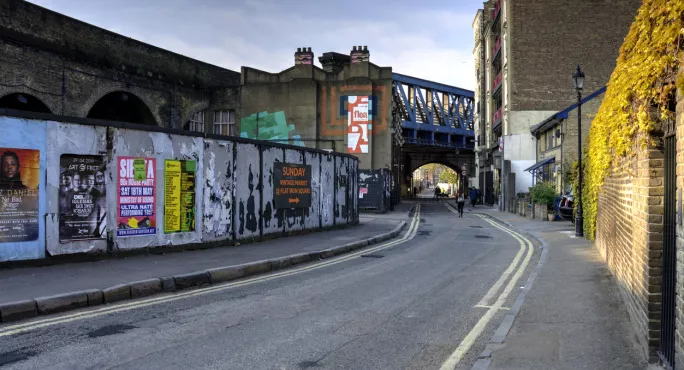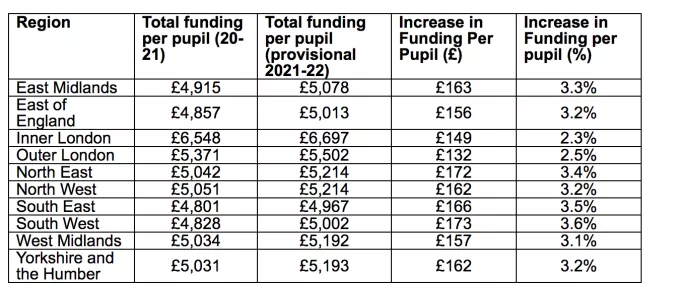Inner-London schools are set to see the smallest percentage funding increases from the extra £2.2 billion the government is giving to schools in 2021-22, new figures reveal.
The Department for Education has published plans for the second year of its three-year £7.1 billion school funding increase today with breakdowns of how much each school will receive.
All state schools in England are set to receive a funding increase in central government funding of at least 2 per cent per pupil in 2021-22.
However, a regional breakdown of the figures shows that schools in London, and in particular inner London, will get the smallest percentage increases in funding.
Background: School funding down since 2010, DfE finally admits
Coronavirus: £1bn catch-up fund announced
Funding: Catch-up cash for Year 7 pupils scrapped as National Formula comes in
In actual terms, the £173 extra per pupil that schools in the South West will get on average is 31 per cent more than the £132 per pupil boost for outer London schools.
Nationally, the department said that each secondary school will attract a minimum of £5,150 per pupil and each primary a minimum of £4,000 per pupil under the national funding formula from 2021, up from the £5,000 and £3,750 that schools are receiving this year.
It also said extra funding for small and remote schools will increase by more than 60 per cent.
Who gains the most from school funding increase?
Tables show that schools in the capital will gain the least proportionately. In inner London, the average increase in funding will be 2.3 per cent per pupil and in outer London the figure will be 2.5 per cent.
The rest of the country will see increases of more than 3 per cent. The biggest increase will be in the South West, where the figure will increase by 3.6 per cent.
However, London schools will still receive more per pupil than anywhere else in the country.
The DfE also confirmed today that schools’ allocation from the £650 million catch-up premium - which is part of an overall £1 billion fund - will be based on the number of pupils a school has and will be paid once a term over the 2020-21 academic year.
As Tes reported last month, this money will not be targeted towards disadvantaged pupils so schools with the most affluent intakes will get the same per-pupil extra funding for Covid catch-up as those serving the poorest.
The department has now said that a 1,000-pupil secondary school will receive £80,000 and a 200-pupil primary school will receive £16,000 to tackle the impact of lost teaching time on pupils as a result of the coronavirus pandemic.
Education secretary Gavin Williamson said: “This year has been incredibly challenging for schools, teachers and students due to the Covid-19 outbreak, with everyone working in education going to incredible lengths to support children and ensure they can get back to the classroom.
“Not only are we confirming another year of increased and better-targeted funding for our schools, but, with our transformative national funding formula, we are making sure the money is distributed fairly across the country so all schools can drive up standards.
“With two-thirds of local authorities now having moved towards the national funding formula, it is time for the remainder to follow suit and ensure fairness for every child.”





